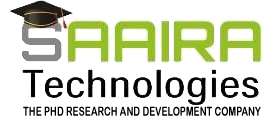Plagiarism Checker
A Plagiarism checker is a tool that involves using specialized software to analyze written work and identify instances of copied or unoriginal content. It employs comparing the submitted text against vast databases of sources to ensure proper attribution, preserve academic integrity, and uphold originality in research and writing.

Maintaining originality and integrity in research and writing is crucial in the academic world. The use of another person’s work without providing due credit is known as plagiarism, and it may have serious repercussions for both students and teachers. Plagiarism detection has become an essential tool in the fight against this problem. This comprehensive book goes deeply into the complexities of plagiarism checking, examining how plagiarism checkers work, the difficulties in detecting plagiarism, recommended practices for academics utilizing these tools, and the moral questions raised by their use.
What is Plagiarism Checking?
Utilizing specialized tools to analyze written material and spot instances of duplicated or unoriginal information is known as plagiarism checking. In order to guarantee that the right credit is provided to the original authors and maintain academic integrity, these plagiarism checkers methodically comb through huge databases of academic sources, websites, and periodicals.
How Plagiarism Checking Works:
For reliable text analysis, plagiarism checkers use advanced algorithms and approaches. Let’s investigate the nuances of the procedure:
Text Comparison Algorithms: Advanced algorithms are used by plagiarism checkers to compare supplied text with a large database of sources. These algorithms may even find similarities and matches in paraphrased material.
Database Indexing: Regularly updated plagiarism detection tools frequently update and catalog their databases, incorporating the latest academic research and online content to provide thorough and current results.
Similarity Reports: Following content analysis, plagiarism detection tools provide similarity reports that highlight similar material and determine the proportion of similarities discovered.
Choosing the Right Plagiarism Checker:
Both educational institutions and individual users must utilize the most effective plagiarism detection tool. The following considerations should be considered while determining the course of action to take:
Database Size and Sources Indexed: A reliable plagiarism checker should boast an extensive database that includes academic journals, books, and reputable online sources, ensuring thorough checks.
Scanning Efficiency and Speed: Select a plagiarism detector that produces accurate results quickly.
Integration with Academic Platforms: Look for a tool that seamlessly integrates with word processors or learning management systems to streamline the process for both instructors and students.
User-Friendly Interface: A simple interface makes running plagiarism tests and analysing the findings faster and easier.
Accuracy and Precision: The top plagiarism detectors provide accurate findings with a low percentage of false positives and negatives.
Addressing Challenges in Plagiarism Detection:
Even while plagiarism checks are useful tools, they often have trouble spotting complicated situations. Typical difficulties include:
Patchwork Plagiarism: This kind of plagiarism includes assembling duplicated passages from many sources, which makes detection more challenging.
Plagiarism in Non-Textual Content: For conventional text-based plagiarism checkers, it might be difficult to detect plagiarism in graphics, multimedia presentations, and code.
Contract Cheating: To produce original work, some students may seek the assistance of ghostwriters or online services, potentially leading to hidden instances of contract cheating.
False Positives and Negatives: Content may sometimes be flagged as original when it is not, or vice versa, by plagiarism checkers.
In order to address these issues, instructors and institutions might combine the outcomes of plagiarism detectors with manual inspection and academic integrity instruction.
Integrating Plagiarism Checking in the Academic Workflow:
Plagiarism checking should be smoothly incorporated into the academic process in order to promote a culture of honesty in the classroom. Several steps to achieving this aim are listed below:
Implementing plagiarism checks into assignments: Have students submit their work after having it checked for plagiarism.
Teaching Students About Plagiarism: Give students in-depth instructions on what plagiarism is and how it can be avoided.
Using Plagiarism Checks for Research Publications: Before publishing their work, researchers and academics may utilize plagiarism checkers to ensure that it is original.
Ensuring Fairness and Consistency in Grading: Checks for plagiarism assist in ensuring that all students are held to the same academic standards.
Addressing False Positives and Negatives:
It may be difficult to use plagiarism checkers successfully because of false positives (which label non-plagiarized text as plagiarized) and false negatives (which fail to find true plagiarism). This is how to deal with them:
- Recognizing False Positives: Educators should thoroughly examine reported texts to determine if they actually contain instances of plagiarism.
- Suggestions to Lower False Positives To fine-tune the analysis’s sensitivity and specificity, change the plagiarism checker’s parameters.
- Handling False Negatives: Combine human evaluation and knowledge with computerized plagiarism detection to reduce false negatives.
Best Practices Using Plagiarism Checkers:
- Setting clear an expectation is step one. It is essential that students are made aware of your institution’s policies on academic integrity and plagiarism.
- Giving comments on Plagiarism Reports: Encourage originality by providing students with constructive comments based on plagiarism checker findings.
- Promote good citation and reference practices by highlighting their significance for academic writing.
- Using Plagiarism Checks as Teaching Opportunities: Use plagiarism cases as teaching opportunities to impart academic integrity to pupils.
Ethical Considerations in Using Plagiarism Checkers:
While plagiarism detectors are important tools, it’s important to think about the ethical implications:
- Respecting privacy means treating their work carefully and keeping their information private.
- Safely Storing and Handling Student Work: Take steps to protect submitted assignments and student data.
- Adhering to Institutional Policies and Guidelines: Obey your institution’s rules for data use and plagiarism detection.
Plagiarism detection is essential for maintaining originality and academic integrity. Professors may promote an environment of academic honesty by being aware of how plagiarism checkers operate, dealing with any issues, incorporating them into the workflow, resolving false positives and negatives, and adhering to best practices and ethical concerns.
Reach out to us at www.saairatechnologies.com or give us a call at 9361223829 if you need assistance with the Plagiarism Checking.


